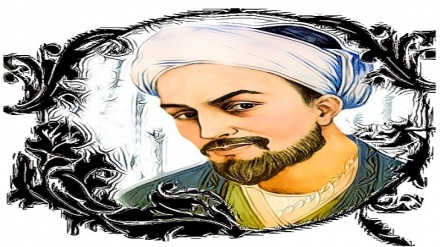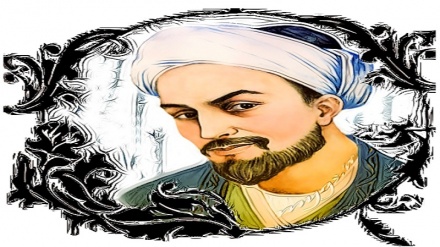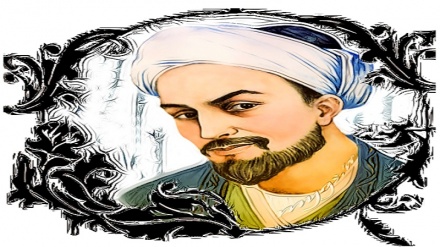Iranian notables, sources of global honor (115)
Today, we continue to discuss the life of the well-known Iranian mystic, hadith scholar, and poet of 6th Century AH, who was also the founder of the Kebrouyeh branch of mysticism, Sheikh Najm Ed-Din Kobra.
As a reminder, we said that Sheikh Najm Ed-Din Kobra was born in Greater Khorasan in the year 540 AH. He completed his preliminary studies in his hometown, and later went on several journeys, with the intention of acquisition of knowledge. He traveled to several regions in order to meet knowledgeable figures. In addition to being a mystic, Najm Ed-Din Kobra was also an exegete of Holy Quran, an astronomer, a philosopher, and a lexicographer. In the year 575 AH, he returned to his homeland on the orders of his lecturer, and began to groom a large number of students.
Meanwhile, in the year 618 AH, and at the age of 78, Sheikh Najm Ed-Din Kobra heroically courted martyrdom in a confrontation with the invasive Mongol troops.
The leading followers of the Kebrouyeh branch of mysticism were the pioneers of mysticism, sharia, and sciences of their era, compiling deep-rooted, mystical works, while leaving behind highly beneficial writings to this day.
In accordance to historical works and writings; Najm Ed-Din Kobra and his students penned a number of compilations and left behind valuable works for reinforcement of scholars, and their branch of mysticism. In addition to Najm Ed-Din Kobra, who has left valuable and significant books on the domain of mysticism, and for the wayfarers; a number of his students have also left behind precious books and compilations. Thus, Kebrouyeh is among the riches branches of mysticism in regard to registration of works; promotion of elevated Shia principles and values, and Iranian culture.
Najm Ed-Din Kobra authored many books and compilations, alongside teaching Islamic sciences, and educating wayfarers. He has penned some of his writings, upon the demand of his followers and scholars. Fortunately, some of his valuable works are present in a number of libraries, round the world; while only the titles of some of his works have remained to this day. Researcher, Dr. Tofiq Sobhani, in reference to the hand-written copies of Sheikh Najm Ed-Din Kobra, has named 32 works of this prominent mystical figure. Another researcher, Dr. Asadollah Khavari, has presented an appropriate analysis of the works of Sheikh Najm Ed-Din Kobra, and has pointed out some of the hand-written copies of Kobra’s works in a number of libraries in Turkey. Some of the compilations of this great mystic are in Farsi, while the rest are in Arabic language.
The works of Sheikh Najm Ed-Din cover a highly diverse range of subjects, and not all of them are based on Sufi writing style. It is said that he presented an exegesis of all ayahs of Holy Quran in twelve volumes.
This renowned mystic has also left behind many works in mysticism, the best known of which is the book titled: “Favaeh Al-Jamal va Favateh Al-Jalal”. This book is of paramount importance when it comes to teaching and grooming students. This book is highly beneficial for those, who want to become familiar with Kebrouyeh branch of mysticism, to an extent that without reading this book, their knowledge in this domain of mysticism would be incomplete. The most important feature of this work is that Najm Ed-Din Kobra has registered and authored his personal experiences. The study of this book, leads to an understanding of the teachings of Kebrouyeh branch of mysticism, while also assisting the reader to grasp the mystical lifestyle of the compiler of this book. In fact, many of the mystical views of Sheikh Najm Ed-Din Kobra have been presented and discussed in this book.
A treatise penned by Najm Ed-Din Kobra has been left behind which is popularly known as the Ten-Conditions Treatise. This treatise is in fact the summarized translated text of another treatise from Arabic into Farsi language. Given that not everyone knew Arabic language, the Farsi speakers called for translation of the said treatise into Farsi language in order to understand and study this writing.
The other work of Sheikh Najm Ed-Din Kobra is named al-Osoul al-Ashara, which was translated by Mir Seyed Ali Hamedani. In this work, the author has named whatever is essential for the mysticism of a wayfarer, such as repentance, piety, frugality, and patience.
MR/EA


